Finger Print Locks Strengthen the security of your device with sophistication. Say goodbye to keys & codes at best price in India
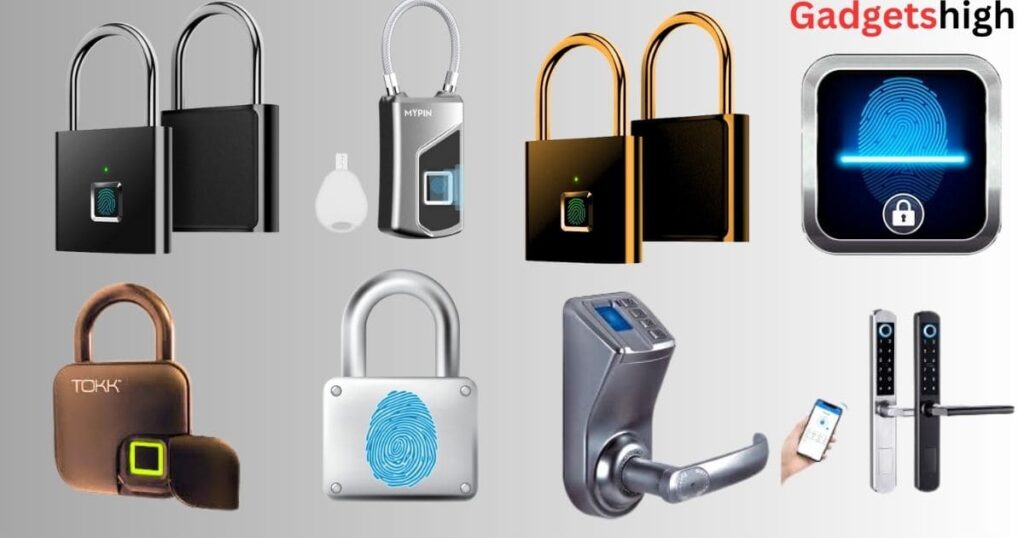
Finger Print Locks
Finger Print Locks: A Secure and Convenient Way to Access Your Devices
Finger Print locks are a type of biometric security that uses a person’s fingerprint to verify their identity. They are becoming increasingly popular as a more secure and convenient alternative to traditional passwords and PINs.
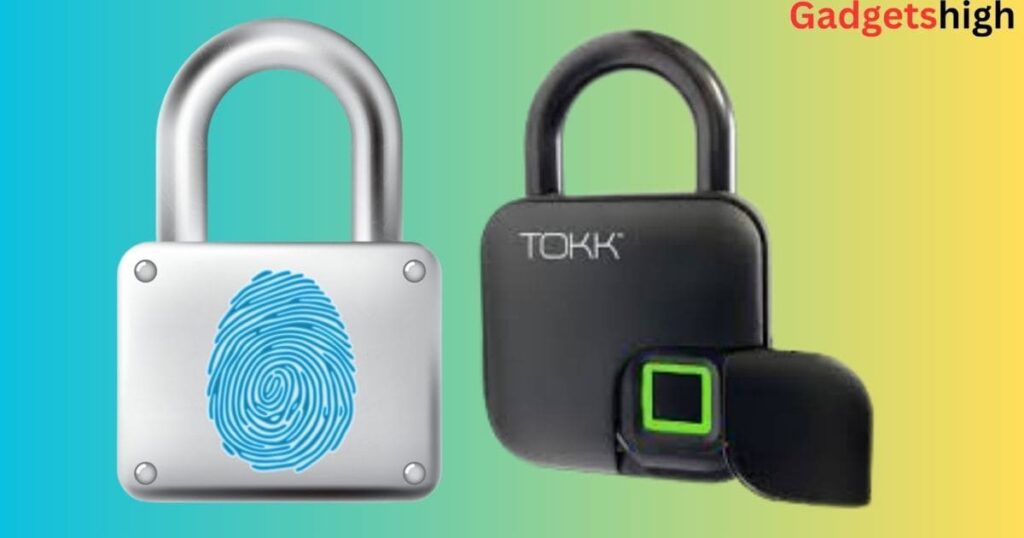
Finger Print Locks work by scanning the unique patterns of ridges and valleys on a person’s fingertip. This scan is then compared to a stored fingerprint database to verify the user’s identity.
Fingerprint locks offer several advantages over traditional passwords and PINs. First, they are more secure. It is very difficult to replicate a fingerprint, making it much harder for unauthorized users to gain access to a device.
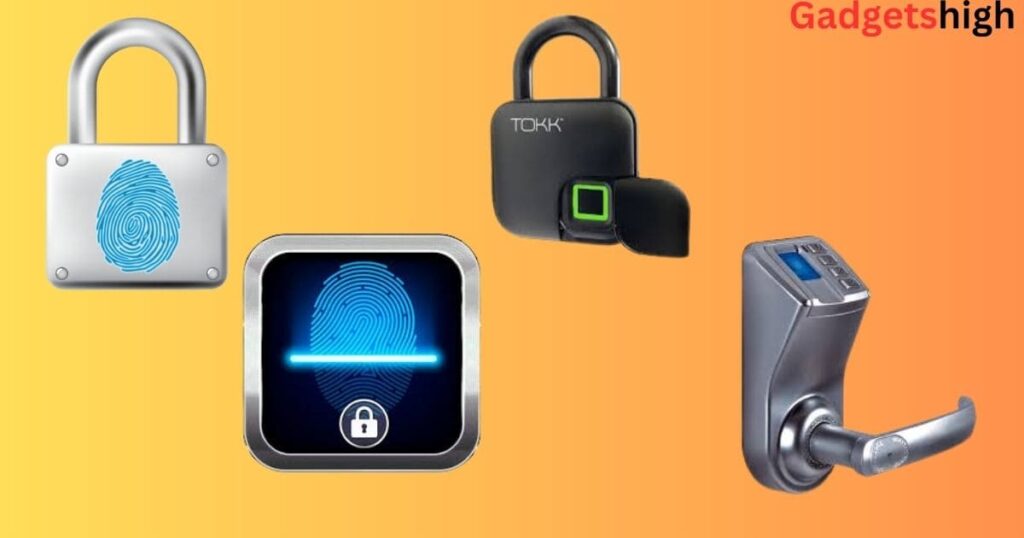
Second, fingerprint locks are more convenient. Users do not have to remember a complex password or PIN, and they can simply swipe their fingers across the sensor to unlock their device.
This can save time and hassle, especially when users are trying to access their devices quickly.
Third, fingerprint locks are more versatile. They can be used to unlock a wide variety of devices, including smartphones, laptops, tablets, and even cars.
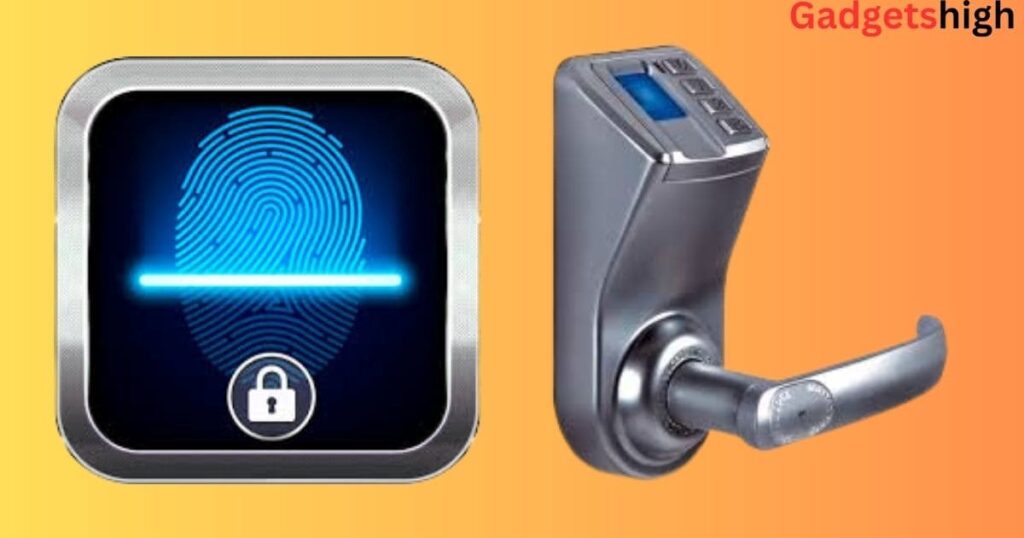
Of course, no security system is perfect, and fingerprint locks are no exception. One potential drawback is that they can be fooled by high-quality prosthetic fingerprints.
However, this is a relatively rare occurrence, and the benefits of fingerprint locks generally outweigh the risks.
Finger Print Locks are a secure and convenient way to access your devices. They are becoming increasingly popular, and they are a good option for anyone who is looking for a more secure and convenient way to protect their devices.
Finger Print locks Price list in India & USA
The price list of finger print locks in USA and India in 2023.
Product USA INDIA
- AcuSens Fingerprint Lock $39.99 Rs 3500
- Amsec Fingerprint Deadbolt $59.99 Rs 4900
- Honeywell Fingerprint Lock $69.99 Rs 5700
- Yale Assure Lock $99.99 Rs 8300
- Kwikset Smart Code 916 $119.99 Rs 9600
- August Smart Lock Pro $199.99 Rs 16000
- Schlage Encode $199.99 Rs 16000
- Samsung SHS-H705 $249.99 Rs 21999
- Nest Yale Lock $249.99 Rs 21999
As you can see, the prices of fingerprint locks vary widely. There are affordable options available for as low as $39.99, while there are also more high-end models that cost over $200.
The price of a fingerprint lock will depend on a number of factors, including the features of the lock, the brand, and the retailer.
For example, a lock with more advanced features, such as Bluetooth connectivity or a built-in alarm, will likely cost more than a basic lock with fewer features.
It is also important to consider the retailer when comparing prices. Some retailers, such as Amazon and Home Depot, often offer discounts on fingerprint locks.
Finger Print Locks for doors
Finger Print Locks for doors are a type of biometric security that uses a person’s fingerprint to verify their identity.
When a user places their finger on the fingerprint sensor, the scanner captures an image of the fingerprint and compares it to a stored fingerprint database. If the fingerprint matches, the lock is unlocked.
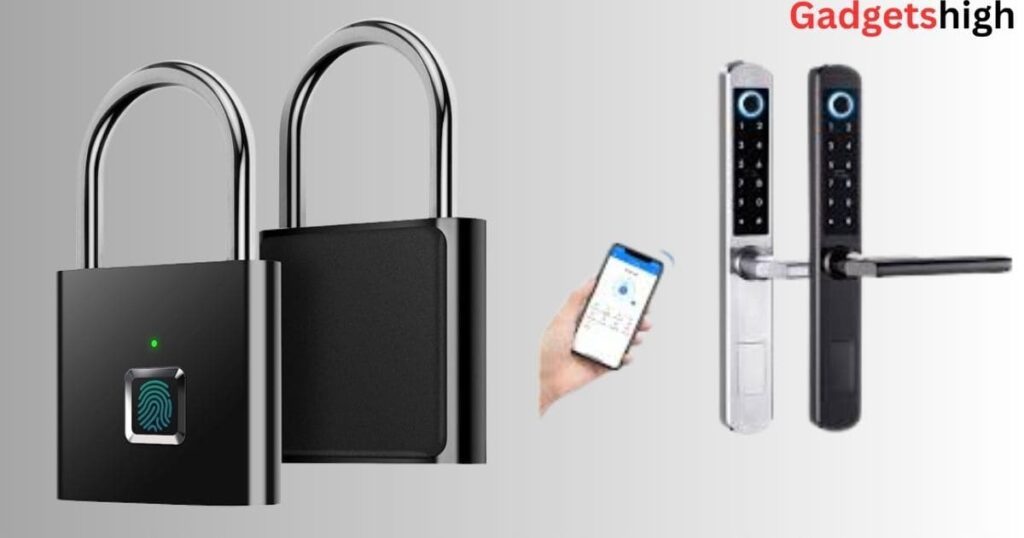
Fingerprint locks for doors are becoming increasingly popular as a more secure and convenient alternative to traditional keys. They offer several advantages over keys, including:
- They are more secure. It is very difficult to replicate a fingerprint, making it much harder for unauthorized users to gain access to your home.
- They are more convenient. You do not have to carry around a key, and you can simply swipe your finger across the sensor to unlock your door.
- They are more versatile. Fingerprint locks can be used with a variety of different door types, including wood, metal, and glass doors.
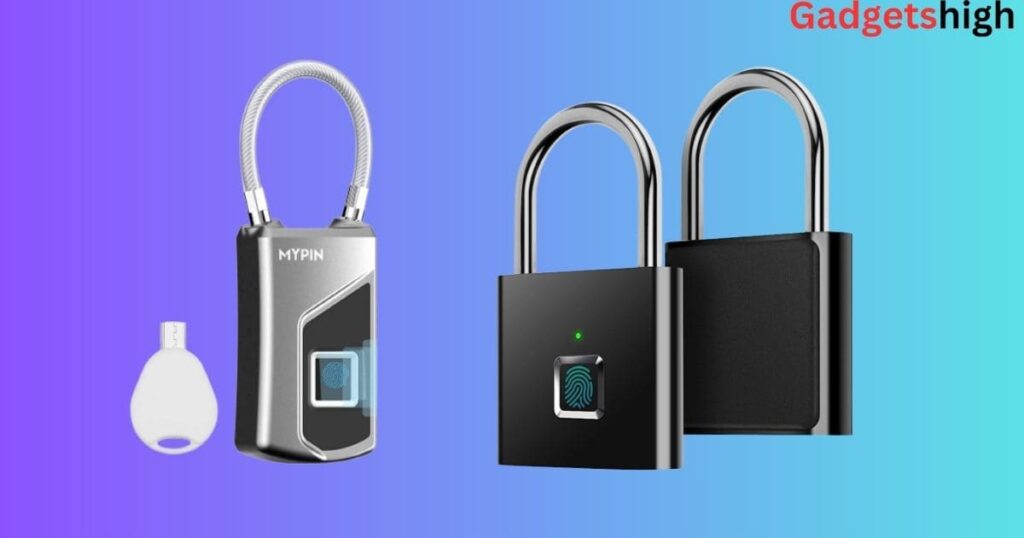
Fingerprint locks for doors are available in a variety of different models, so you can choose one that fits your needs and budget.
Some models have additional features, such as Bluetooth connectivity, so you can unlock your door from your smartphone.
If you are looking for a more secure and convenient way to lock your door, a fingerprint lock is a great option. They are easy to install and use, and they offer peace of mind knowing that your home is secure.
Here are some additional details to consider when choosing a fingerprint lock for doors:
- The type of door. Make sure that the fingerprint lock is compatible with the type of door you have.
- The features. Consider the features that are important to you, such as Bluetooth connectivity, a built-in alarm, or a backup key.
- The price. Fingerprint locks for doors price range starting a few hundred dollars to several thousand dollars.
Finger Print Locks benefits
They are less susceptible to shoulder surfing, which is a type of attack where an attacker tries to see someone’s password or PIN as they type it in.
They can be used in conjunction with other security measures, such as passwords and PINs, to create a more layered security system.
They are becoming more affordable, making them a more accessible option for people of all budgets.
Fingerprint locks drawbacks
They can be fooled by high-quality prosthetic fingerprints.
They may not be as secure as some other biometric security measures, such as facial recognition.
They may not be suitable for people with certain medical conditions, such as diabetes.
Fingerprint locks are a secure and convenient way to access your devices. They offer several advantages over traditional passwords and PINs, and they are becoming increasingly affordable.
Here are some tips for choosing a fingerprint lock:
Make sure that the Finger Print Locks is compatible with your devices.
Consider the size and weight of the fingerprint lock.
Choose a fingerprint lock that is easy to use.
Look for a fingerprint lock that has a good reputation for security.
Here are some tips for using a fingerprint lock:
Keep your fingerprints clean and free of dirt and debris.
Register multiple fingerprints for each user.
Change your fingerprints regularly.
Be careful about where you store your fingerprint data.
Fingerprint Locks: Pros and Cons
Fingerprint locks are a type of biometric security that uses a person’s fingerprint to verify their identity.
They are becoming increasingly popular as a more secure and convenient alternative to traditional passwords and PINs.
Pros of fingerprint locks:
- More secure: It is very difficult to replicate a fingerprint, making it much harder for unauthorized users to gain access to a device.
- More convenient: Users do not have to remember a complex password or PIN, and they can simply swipe their finger across the sensor to unlock their device.
- This can save time and hassle, especially when users are trying to access their devices quickly.
- Versatile: Fingerprint locks can be used to unlock a wide variety of devices, including smartphones, laptops, tablets, and even cars.
- Less susceptible to shoulder surfing: Shoulder surfing is a type of attack where an attacker tries to see someone’s password or PIN as they type it in.
- Fingerprint locks are less susceptible to this type of attack because the user’s fingerprint is not visible to the attacker.
- Can be used in conjunction with other security measures: Fingerprint locks can be used in conjunction with other security measures, such as passwords and PINs, to create a more layered security system.
Cons of fingerprint locks:
Can be fooled by high-quality prosthetic fingerprints: While it is very difficult to replicate a fingerprint, it is possible to create a high-quality prosthetic fingerprint that can fool a fingerprint lock. However, this is a relatively rare occurrence.
May not be as secure as some other biometric security measures: Some other biometric security measures, such as facial recognition, are considered to be more secure than fingerprint locks. However, fingerprint locks are still a very secure option.
May not be suitable for people with certain medical conditions: People with certain medical conditions, such as diabetes, may not be able to use fingerprint locks.
Fingerprint locks are a secure and convenient way to access your devices. They offer several advantages over traditional passwords and PINs, but they also have some drawbacks.
It is important to weigh the pros and cons before deciding whether or not to use a fingerprint lock.
Here are some additional things to consider when deciding whether or not to use a fingerprint lock:
The cost of the fingerprint lock.
The compatibility of the fingerprint lock with your devices.
The ease of use of the fingerprint lock.
The security of the fingerprint lock.
FAQs about Finger Print Locks:
What is a fingerprint lock?
A Finger Print Locks is a type of biometric security that uses a person’s fingerprint to verify their identity.
When a user places their finger on the fingerprint sensor, the scanner captures an image of the fingerprint and compares it to a stored fingerprint database. If the fingerprint matches, the lock is unlocked.
How secure are fingerprint locks?
Fingerprint locks are considered to be very secure. It is very difficult to replicate a fingerprint, making it much harder for unauthorized users to gain access to a device.
What are the benefits of using a fingerprint lock?
There are several benefits to using a fingerprint lock. First, fingerprint locks are more secure than traditional passwords and PINs. Second, fingerprint locks are more convenient than traditional passwords and PINs.
Third, fingerprint locks can be used in conjunction with other security measures, such as passwords and PINs, to create a more layered security system.
What are the drawbacks of using a fingerprint lock?
There are a few drawbacks to using a Finger Print Locks. First, fingerprint locks can be fooled by high-quality prosthetic fingerprints. Second, fingerprint locks may not be as secure as some other biometric security measures, such as facial recognition.
Third, fingerprint locks may not be suitable for people with certain medical conditions, such as diabetes.
How do I choose a fingerprint lock?
There are a few things to consider when choosing a Finger Print Locks. First, you need to make sure that the fingerprint lock is compatible with your devices.
Second, you need to consider the size and weight of the fingerprint lock. Third, you need to choose a fingerprint lock that is easy to use. Finally, you need to look for a fingerprint lock that has a good reputation for security.
How do I use a fingerprint lock?
To use a fingerprint lock, you first need to register your fingerprints with the lock. This is usually done by placing your finger on the fingerprint sensor several times.
Once your fingerprints are registered, you can use the lock by placing your finger on the sensor. If the fingerprint matches, the lock will be unlocked.
How do I keep my fingerprint lock secure?
There are a few things you can do to keep your fingerprint lock secure. First, you should keep your fingerprints clean and free of dirt and debris.
Second, you should register multiple fingerprints for each user. Third, you should change your fingerprints regularly. Finally, you should be careful about where you store your fingerprint data.
What are some common problems with Finger Print Locks?
There are a few common problems with fingerprint locks. First, fingerprint locks can sometimes fail to recognize fingerprints. This can be caused by a variety of factors, such as dirty fingerprints or damaged sensors.
Second, fingerprint locks can sometimes be fooled by high-quality prosthetic fingerprints. Third, fingerprint locks may not be suitable for people with certain medical conditions, such as diabetes.
What is the future of fingerprint locks?
Fingerprint locks are becoming increasingly popular, and they are expected to continue to grow in popularity in the future.
As technology improves, fingerprint locks are becoming more secure and more user-friendly. It is likely that fingerprint locks will become the standard for biometric security in the future.
Conclusion
Finger Print Locks are a convenient and secure way to access your devices. They offer several advantages over traditional passwords and PINs, and they are becoming increasingly affordable.
If you are considering using a Finger Print Locks, it is important to do your research and choose a lock that is right for you.
Consider your needs and budget, and make sure that the lock is compatible with your devices. You should also register multiple fingerprints for each user, and keep your fingerprints clean and free of dirt and debris.
By following these tips, you can choose and use a fingerprint lock that will keep your devices safe.
Here are some additional thoughts on the future of fingerprint locks:
As technology continues to improve, fingerprint locks are likely to become more secure and more user-friendly.
Fingerprint locks may eventually become the standard for biometric security.
Finger Print Locks could be used in conjunction with other security measures, such as passwords and PINs, to create a more layered security system.
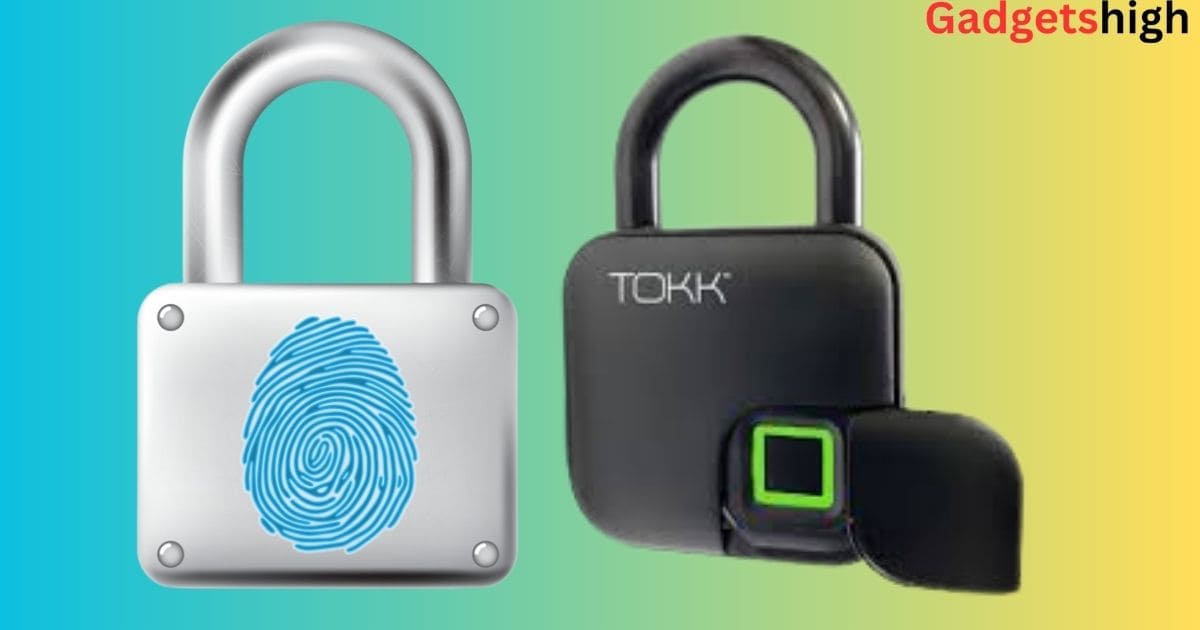
1 thought on “Finger Print Locks: Strong Security at Best Price in India”
Comments are closed.